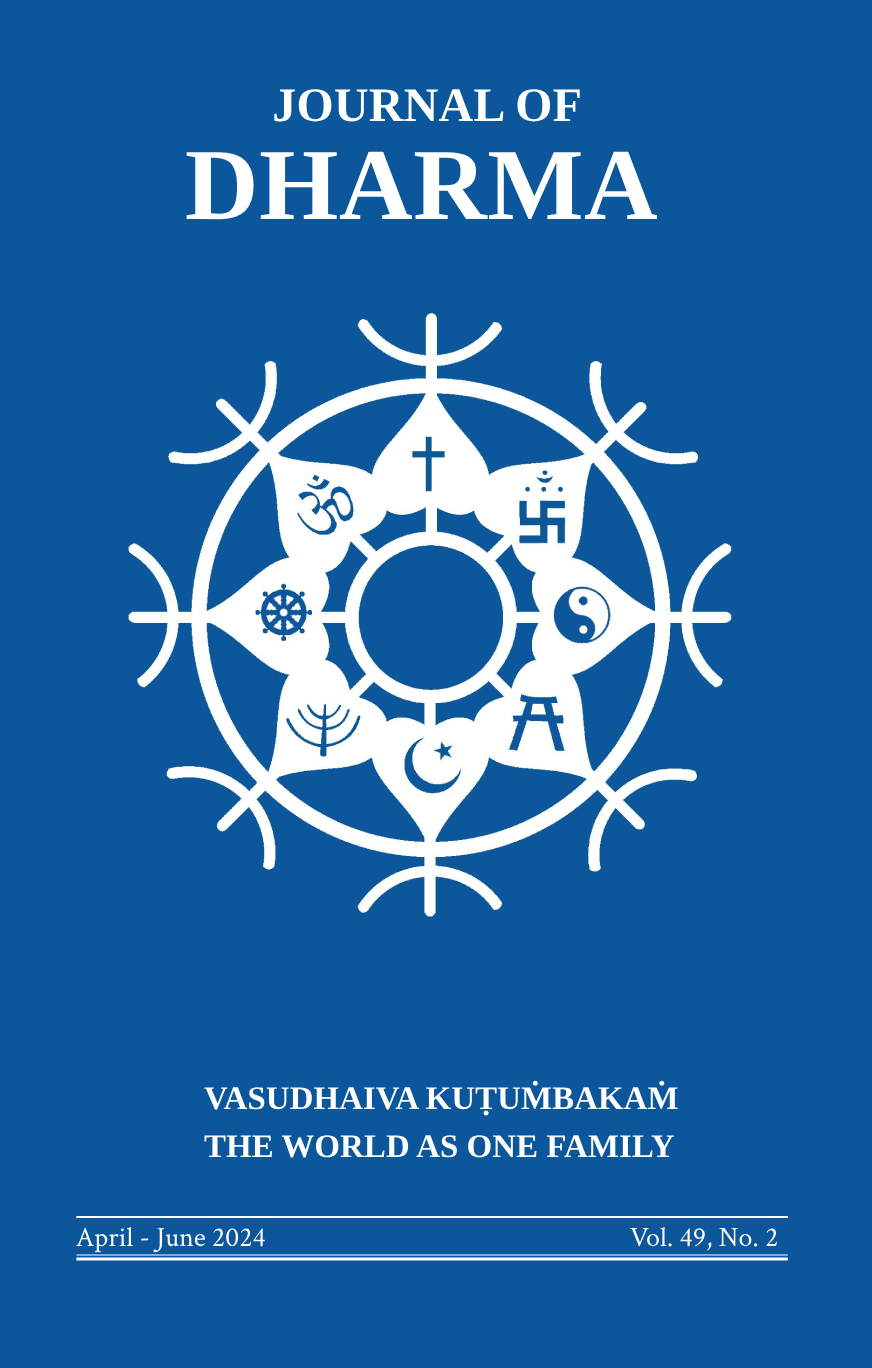Echoes of Vasudhaiva Kuṭuṁbakaṁ in Gandhi’s Ahiṁsā
Keywords:
Ahiṁsā, Vasudhaiva Kuṭuṁbakaṁ, Interconnectedness, Family, Gandhi, Unity, Universal Brotherhood.Abstract
This article examines Gandhian notion of ahiṁsā as an embodiment of vasudhaiva kuṭuṁbakaṁ - the world as one family. To foster friendship and unity among people from diverse cultures and faiths, ahiṁsā is presented as a living embodiment of love, compassion, and empathy. The notion of a universal family is to be rooted in ahiṁsā, a guiding principle that promotes individual conduct linked with collective well-being and highlights the interconnectedness of all living beings. The article also briefly explores how these principles apply to the modern global ethos, emphasizing the need to shift from an individualistic perspective to a more communitarian one. This approach to global family encourages everyone to honour and preserve the dignity of all animate beings. By integrating non-violent means and practices, the realization of vasudhaiva kuṭuṁbakaṁ becomes a viable alternative for addressing contemporary issues of social justice and achieving lasting peace for humanity.
Published
How to Cite
Issue
Section
License
Copyright (c) 2024 Journal of Dharma

This work is licensed under a Creative Commons Attribution-ShareAlike 4.0 International License.

